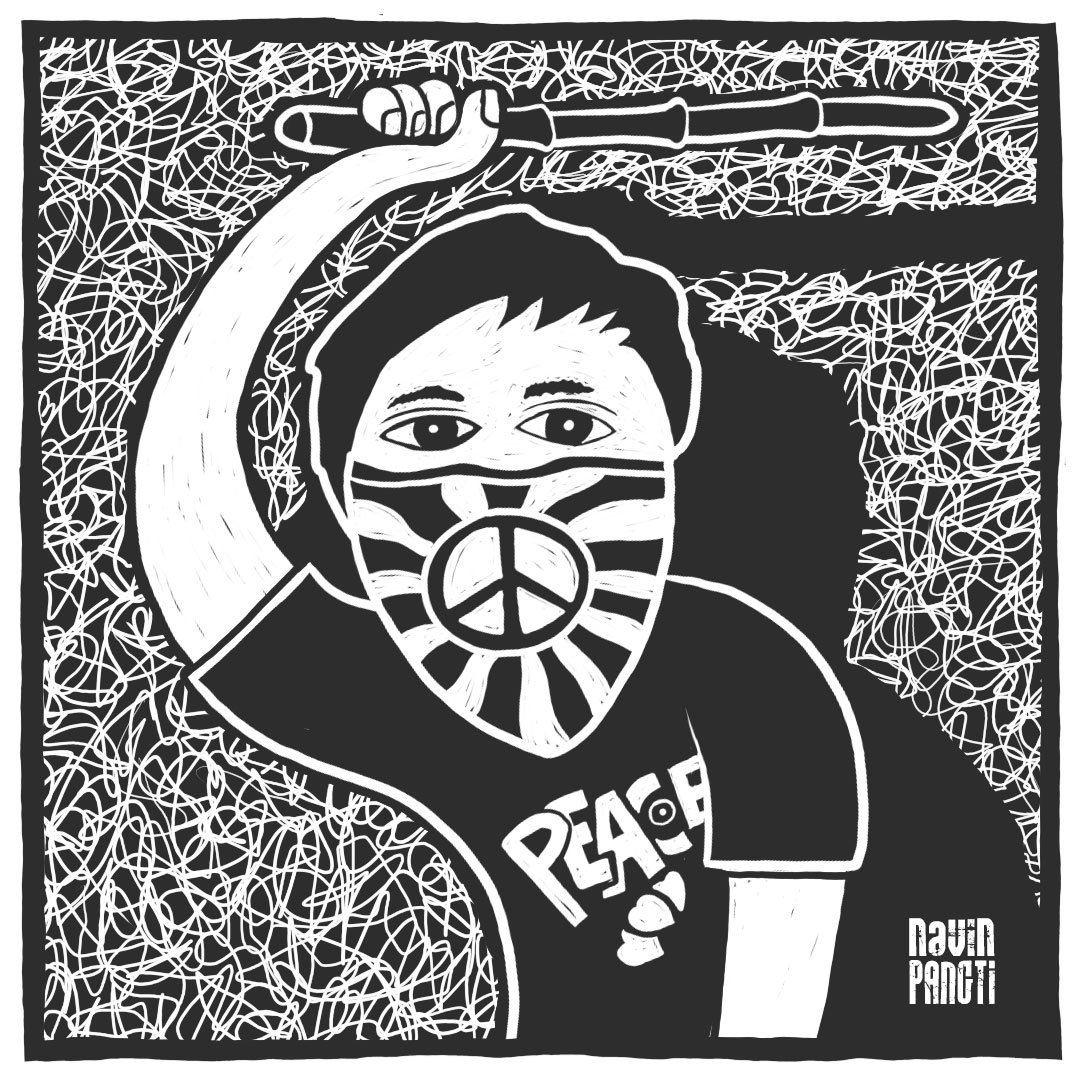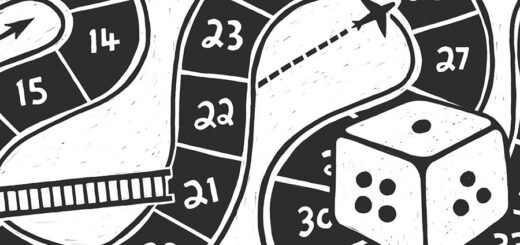Ghosts from the past
I always believed that ragging was a blatant abuse of power. But when my turn came, I ended up making mistakes. Creating ghosts that one can choose to ignore but cannot wish away.
I shared my ghosts through an anti-ragging publication in 2005. The idea was to unburden oneself. It helped. But the burden remained. I am republishing the article here, with edits, to remind myself that even though fingers have been raised about the authenticity of the Stanford prison project, the fact that roles, symbols, group identity and situational validation influence our behaviour remains unchallenged. Its visible everywhere!
It was 1988. I got admitted as a student of mechanical engineering in MNREC, Allahabad (now MNNIT – Motilal Nehru National Institute of Technology). As soon as I joined college, I got to know about a ragging incident that shook me to the core. The incident had taken place few years ago. A fresher was asked to ride a buffalo. The seniors gleefully looked on as a visibly tensed boy mounted the buffalo. The buffalo, not willing to be a part of the act, shrugged and the young boy fell on his head and died. The event went unpunished.
I knew that I had no option but to ‘experience’ the ‘strong tradition’ of ragging. The experience began within the first week itself. All the boys were forced to wear white shirt, white trousers and black shoes. The girls wore white salwar kameez and black shoes. Their well-oiled hair adored red ribbons too. This was the dress code for three long months!
The sheer ‘maturity’ of this tradition can be found in the details. The third button of the white shirt, from the top, was to be red so that the fresher knew where to look, walking or talking. A forced mark of respect!
During the entire ragging period, whenever we met a senior we had to bend forward, at 90 degrees, as a mark of respect. Inability to bend was considered rude and was rewarded with slaps, punches and kicks. Walking towards the lecture rooms or returning back to the hostel was a terrifying experience.
The regional, caste and class affiliations added new dimensions to this saga. A year before I joined college, students from the UP hills (now Uttarakhand) had a violent clash with students from Meerut region. Their conflict continued through us. Seniors from Meerut region assumed that it was their fundamental right to hit freshers from the hills. Seniors from the hills reciprocated the gesture. Freshers belonging to lower castes, tribals and minorities got a raw deal. But for those incidents, I would have still believed that castes and classes exist only in the history textbooks!
Ragging was not limited to slaps and kicks. Freshers were asked to strip, enact vulgar postures, and engage in dirty talks about female members of their family. I was pretty scared and enraged. But little did I know that the worst was yet to come.

There was a tradition to end the three months ragging period with a ritual called ‘mass ragging’. On the marked day, secretly chosen, masked senior students would raid the junior hostel. The group largely consisted of second year students. Armed with iron rods and hockey sticks, they would bang the doors, kick them open and beat up any junior they could lay their hands on. It looked like a random act of violence but it was not. Selective targets were mercilessly assaulted. As some of our seniors had forewarned us about the possibility of the event, most of us were ready. All the juniors struggled tooth and nail to keep the doors closed. But not everyone could.
Time flew. As second year students we were in charge of the legendary ragging tradition. Luckily, the first decision we made was not to indulge in ‘mass ragging’. Next year, our juniors followed suit.
But when we were in our final year college, the then second year students, out of the blue, decided to revive the forgotten tradition. A small group of 15-20 students stormed the junior hostel. Caught unawares, the juniors panicked. They had no idea where these masked men descended from. While some were getting beaten up ruthlessly, others ran for cover. In this chaos, few of them jumped from the first floor and got injured. The fresher from Assam jumped from the second floor and broke his neck.
The guys who conducted the inhuman raid, unaware of injuries, collected all the juniors, got them to strip and walked them over to the senior hostel area. In the silence of the night we were alarmed by the sound of hundreds of hesitant and scared footsteps, as they passed by the final year hostel. Shocked, we ran for rescue. Meanwhile, some sane second year students rushed towards the junior hostel to calm down the panicking juniors only to find a fresher with a broken neck. A group of students took the injured to the hospital, some engaged in calming down the juniors while some started looking for the culprits. It was tough but eventually they all were caught, except for perhaps the kingpin and some smart ones who had good friends to help them wriggle out of this mess.
That criminal night was followed by sickening and pathetic arguments of the college professors who wanted to sweep the incident under the carpet. ‘Let us save the college reputation’ was their one line defence. It was not surprising because such responses were, and still are, an administrative habit.
Not long before this incident, a lawyer who lived nearby had tried to rape a college student. The faculty simply refused to act. And to add insult to injury, they virtually defended the act by saying something as stupid and derogatory as – “The ants will always come looking for sugar!”
The enraged students had then taken law in their own hands and forced the college and the police to take action. In fact I had heard rumours that few radical students had even planned to eliminate the principal who was supposedly a family friend of the culprit. Nothing adverse happened to that senior professor who nursed and aired such repressive views. In fact he climbed the professional ladder with ease and ended up being the founding principal of an engineering college. The principal too did well. And they kept getting their share of guru-respect!
Coming back to the ragging incident, the boy with the broken neck could not make through. His devastated parents stood, with folded hands, thanking students for helping them out at the hospital. In that shocking moment of truth and no one knew how to react.
Meanwhile, after pressure from the students, the college authorities hesitatingly initiated disciplinary action and lodged an FIR with the police. One student got expelled while two got rusticated for two terms. Some students were expelled from the hostel. Basically, nothing much happened. A murder was committed and the murderers virtually walked away free!
I guess the rusticated students would have joined some other college and may be working somewhere – as government officials, businessmen or private sector executives. The irony would be to find one of them serving as a cop! I do not know if they still remember this incident and regret their roles. My understanding is that it is not so easy to forget the ghosts from the past, specially our personal ghosts.
As a first year student I had vowed never to rag anyone. As a second year student, I avoided ragging in general. I sat with few freshers and quizzed them for half an hour or so, only to befriend them.
But power corrupts!
I was quizzing a young boy from my native area and found him slow in his responses. My biased perspectives about being good, right and smart overtook my sanity and before I could realise, my hand landed on his cheeks. Somehow I did not hear the sound of the slap which I had hated as a ‘victim’. I thought I was right because I had a reason. I felt the same, a few times more. Little did I know that there is nothing called a ‘justified’ murder, not even war!
In another such incident, I witnessed some freshers being physically ragged by our seniors. I was asked to sit and watch. So I sat and watched. The freshers hailed from my native place. I think they wanted me to ‘save’ them. But I was not in a position to act. I should have, later on, shared this reality with them, but I did not.
Before I could realise and tie up the loose ends of my sanity, the designated period for ragging was over. An irreparable damage had been done. A bridge broken! Subsequently, I did not make efforts to fix it. I do not know why. Maybe it was guilt. I hardly interacted with the boys in question.
Much later in life, I got to know that they still dislike me and cherish a dream of corner me someday. A no-so-funny incident happened once, when one of the boys in question happened to meet my sister and shared his story about an @&$%# he had met in college. My sister soon realised that he was talking about me. She being she, she happily told him that she ‘knew’ the @&$%#!
I don’t know if it is too late to say sorry!
I don’t know if the ‘sorry’ makes any sense now!
I feel that sometimes ‘better late than never’ is no longer applicable!
Postscript – Some college mates, juniors and seniors, wonder why I revisited this event. I wonder why many normalised it. What is more worrisome is the opinion that expressions like these tarnish the name of a ‘premier’ institute. No wonder engineers make good terrorists!













I remember the horrific time of first year. I almost spent all my time in Sandeep maithani’s room. You described quite vividly.
Very well written description of a horrific tradition.
Nicely written Pangti. Brought to mind the many moments we spent together scurrying around MNR to avoid getting ragged.